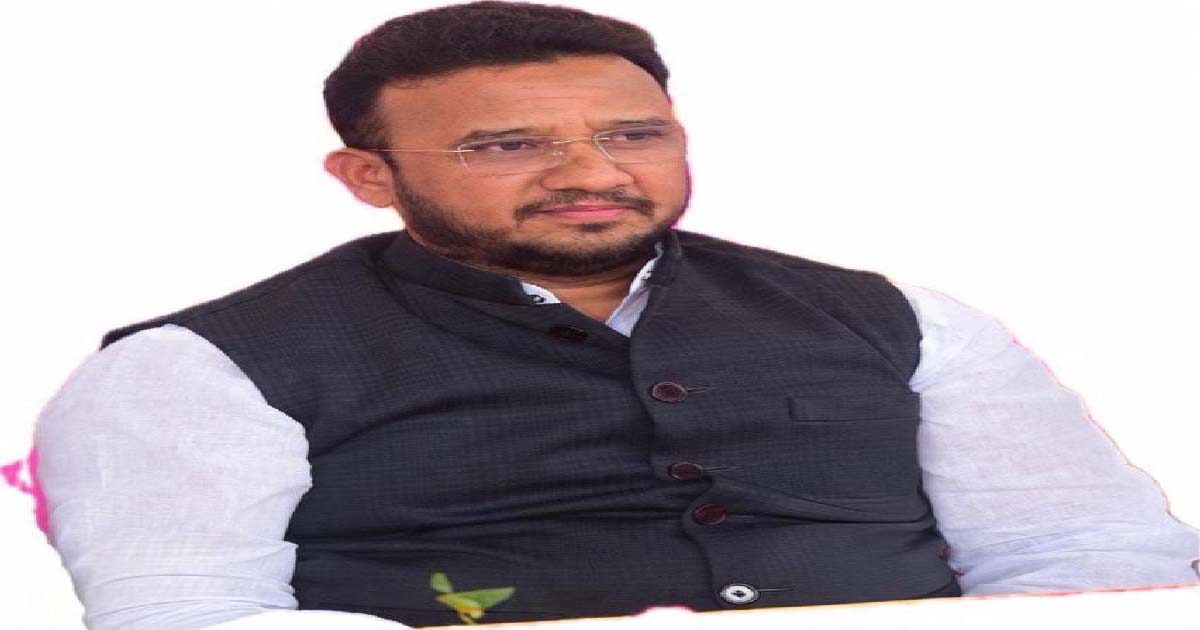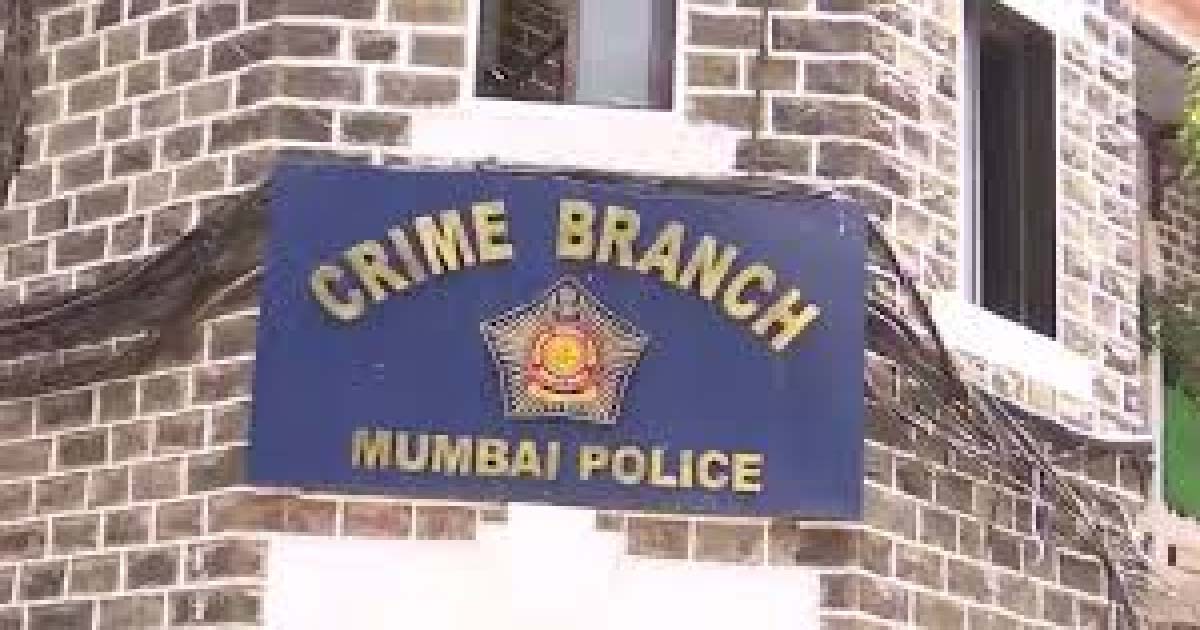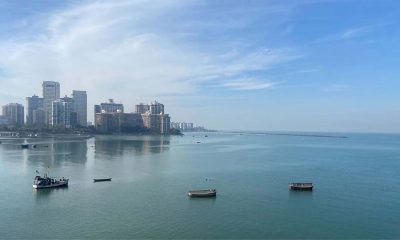Maharashtra
26/11 Fallout: From coastal security upgrade to amping up anti-Pak social media war

The ease with which terrorists entered the country and carried out one of the deadliest attacks on November 26, 2008, dealt a huge blow to the nation’s security system, which led to steps being taken to strengthen coastal security after the 26/11 Mumbai terror attacks.
Since 2008, the victims of the terror attacks have not been able to recover from the shock completely, but the internal security of the country has seen several major changes.
Taking lessons from the terror attacks, security arrangements have been made fool proof, making it safe from rerun of the 26/11 Mumbai attacks.
Considered a failure of various intelligence agencies, the attacks also gave rise to several questions concerning the internal security of the country.
Today India has done a better job on all such diverse fronts concerning safeguarding the internal security matters of the country. Meanwhile, there has been a drastic shift regarding the changes related to the internal security of the country.
Indian Navy, Coast Guard and Marine Police have created a three-tier security system in the coastal areas of the country so that no suspicious activity can go undetected.
The Government of India constituted the Information Management and Analysis Centre in 2014 so that the Navy, Coast Guard and Marine Police could work as a three-tier integrated security unit.
Its main purpose is to ensure that an incident like 26/11 Mumbai terror attacks does not happen again. It acts as a nodal centre for the collection and dissemination of information on coastal security to multiple places.
Apart from this, the Director General of the Indian Coast Guard has been accorded the status of Commander of the Coastal Command, who acts as a coordination between the Central and state intelligence agencies.
At the same time, the strength of the Indian Navy has also increased significantly as compared to 2008. The radar system of the Indian Army has been vastly strengthened, due to which the Navy is able to keep a sharp surveillance in the sea.
The Union government has also procured several patrolling boats and surveillance equipment to beef up coastal security.
According to the Ministry of Home Affairs, after the 26/11 Mumbai attacks, the Coastal Security Scheme Phase-2 has been started in the direction of building maritime infrastructure.
Under this initiative, 121 Coastal police stations have been set up. At the same time, till 2021, 35 jetties and 10 marine operational centres have been established.
Apart from this, 131 four-wheelers and 242 motorcycles have also been purchased for patrolling. The government has also started coastal mapping through which every activity related to maritime security is being monitored with the help of mapping.
The government has also initiated a tracking system for monitoring boats of fishermen going for fishing in the sea. Under this system, one biometric card has been issued to each fisherman. This system has been implemented in many states across the country.
In such a situation, the Coast Guard or Navy can check the identity of any boat by checking its biometric card in case of any suspicion.
After the Mumbai terror attacks, the Maharashtra government formed a special team of commandos named ‘Force One’. The training of Force One personnel is on the lines of training undergone by NSG personnel.
The NSG has also been made much more effective than before. After 2008, now the NSG has regional centres functioning at five places in the country, namely Mumbai, Chennai, Hyderabad, Kolkata and Gandhinagar so that the response time can be reduced in case of a terror attack anywhere in the country.
At the same time, mock drills of NSG jawans are organised from time-to-time in different parts of the country so that they are always well-prepared to handle any situation.
At the time of the Mumbai attacks, the NSG commandos were kept waiting at the airport for eight hours. Such shortcomings have also been removed. The government has given exclusive rights to the NSG, which can now take aircraft from any operator in times of emergency.
Organisations running their terrorist activities from Pakistan work to spread religious fanaticism and collect funds through social media. In view of this, Indian intelligence agencies have laid siege to these organisations on social media as well. Several teams of experts are continuously monitoring social media and taking strict action by identifying people involved in anti-national activities.
The most successful experiment after the Mumbai attacks was the creation of the National Investigation Agency (NIA). Since its inception on December 31, 2008, NIA has been successfully investigating, not only terror attacks and fake Indian currency cases, but also funding networks of terrorist organisations, anti-national organisations and Maoists in Jammu and Kashmir and northeast India effectively.
The regional offices of NIA have been opened in many states. Over the years, the NIA has been able to establish itself as an anti-terror investigative agency.
India has now started a major fight against terrorism, not only within the country but also at international fora. India has hosted three global events this year — the Interpol Annual General Assembly in Delhi, a special session of the UN Anti-Terrorism Committee in Mumbai and Delhi, and the ‘No Money for Terror’ conference.
In these three conferences, an important strategy was prepared on cross-border terrorism and ways to deal with it. Not only this, India has also exposed Pakistan through these global fora.
Maharashtra
Maharashtra Waqf Board approached the Tribunal regarding extension of date, don’t worry, 100% registration is assured: Chairman Sameer Qazi

Aurangabad: (F.A.) The last date for registration on the UMID portal for all registered waqf organisations in Maharashtra, including mosques, dargahs and graveyards, was today, December 5, 2025, which has now expired. Although most of the waqf organisations in Maharashtra have been registered on the portal, some organisations are still missing out due to unavailability of records or other paper errors. In view of this situation, Maharashtra State Waqf Board President Sameer Qazi has appealed to the concerned trustees, trustees and the Muslim community not to panic or believe in any rumours. He has confidently said that: The Waqf Board will complete the registration of every institution. Although the Supreme Court has refused to extend the date, it has allowed the Waqf Tribunal (Waqf Court). The State Waqf Board has approached the tribunal and we are confident that justice will be done there and the deadline for registration on the UMID portal will definitely be extended. Chairman Qazi expressed his firm resolve and further said that the board will not sit in a hurry without the registration of every Waqf institution in the state being completed.
Maharashtra ranks second in the country: 80 percent registration completed.
The registration of all organizations related to the Waqf Board has been completed at a fast pace on the UMID portal. The state of Maharashtra ranks second in the country in terms of registration of Waqf institutions. There are a total of 36 thousand registered Waqf properties in Maharashtra, out of which about 30 thousand (80 percent) properties of organizations have been successfully registered on the UMID portal. All the officers and staff of the Waqf Board have made additional arrangements and completed the registration process. Not only this, but 300 young technicians were hired at the Hajj House in Chhatrapati Sambhaji Nagar to expedite registration on the Omid portal, which is a commendable effort by the board.
Waqf Tribunal issues urgent notice to the central government, seeks response by December 10
Immediately after the Supreme Court’s direction, the Maharashtra Waqf Board approached the Waqf Tribunal. The tribunal has issued a notice to the central government while hearing the matter urgently. The notice asks the centre: “Why should the deadline not be extended?” and has directed it to file its reply by December 10. Due to this urgent action and notice by the tribunal, there is a strong possibility of an extension in the deadline, which has brought a big relief to the waqf institutions.
Don’t pay attention to rumors, time has not been extended.
A statement by Union Minority Affairs Minister Kiren Rijiju was circulating on TV and social media throughout the day today, in which he said that although the trustees have not received any relief, there is hope of getting an extension in time from the tribunal. He also said that no penalty will be imposed on the institutions that approach the tribunal. President Sameer Qazi, while explaining this statement, said: The Minister has not extended the time for uploading on the portal, but has only set a time of three months for checker and approval for those institutions that have already been registered. He explained that false news about the extension in time is being spread on social media, so do not be fooled by any kind of hesitation and until the official extension is done, the institutions must complete the uploading process.
Maharashtra
Mumbai Weather Update: AQI At 183 In ‘Unhealthy’ Category As Temperature Hovers Around 27°C

WETHER
Mumbai’s air quality deteriorated to the unhealthy category on Friday morning, even as the city witnessed clear and sunny weather, according to real-time air quality monitoring data updated at 8.30 am. As per aqi.in, the Air Quality Index (AQI) stood at 183, placing it well within the unhealthy range and raising concerns for vulnerable groups across the city.
Data showed PM2.5 levels at 100 micrograms per cubic metre and PM10 levels at 130 micrograms, both well above safe limits prescribed by health authorities. Elevated particulate matter is known to penetrate deep into the lungs, posing serious health risks, especially to children, the elderly and those with respiratory or cardiac conditions.
Other pollutants, including carbon monoxide at 266 parts per billion, nitrogen dioxide at 16 ppb, ozone at 14 ppb and sulphur dioxide at 7 ppb, remained within controlled limits. However, high particulate matter alone is sufficient to cause breathing discomfort and eye irritation.
The city recorded a temperature of 26 to 27 degrees Celsius, with humidity around 54 per cent and wind speed at nearly 16 kmph. While the weather remained pleasant with no rainfall forecast, the atmospheric conditions failed to prevent the accumulation of fine dust particles in the lower air layers.
The seven-day outlook shows maximum temperatures ranging between 28 and 31 degrees Celsius, with clear skies continuing through the week. Despite the sunshine, pollution levels are expected to remain volatile due to vehicular emissions, construction dust and seasonal factors.
Doctors advise residents to limit prolonged outdoor exposure, especially during morning and late evening hours when pollution concentration tends to be higher. People experiencing coughing, throat irritation or breathlessness are urged to seek medical attention immediately. Use of masks, air purifiers indoors and adequate hydration has been strongly recommended.
Environmental groups have once again urged civic authorities to intensify road dust control, monitor construction activity strictly and regulate traffic emissions. Citizens are also being encouraged to use public transport and avoid unnecessary vehicular travel during peak hours.
With winter setting in, experts warn that Mumbai may witness more frequent unhealthy air days unless immediate mitigation steps are implemented.
Maharashtra
Mumbai: Crime Branch raids travel agency… Fraud in the name of sending abroad illegally, police action, case registered

Mumbai: Several travel agencies in Mumbai’s Nagpara area are defrauding people under the guise of sending them abroad. Such a complaint was received by the Mumbai Police Crime Branch. These agencies do not have any permission from the Ministry of External Affairs and they charge huge amounts of money from people in the name of sending them abroad for jobs. Under the influence of the Ministry of External Affairs, the Protector of Emigrants, Bandra, in collaboration with the Mumbai Crime Branch unit, conducted a joint operation. A raid was conducted on 9 offices in KD Building, Nagpara, which were working to send them abroad without any permission. A complaint was also received regarding them. 238 passports, several documents, offer letters, visiting cards, letters used for foreign use and other documents were also recovered from their offices. The police have registered a case against them under the Passport Act, including the Immigration Act, in Nagpara. The police are investigating the matter further. This operation was carried out by DCP Raj Tilak Roshan on the instructions of Mumbai Police Commissioner Deven Bharti.
-

 Crime3 years ago
Crime3 years agoClass 10 student jumps to death in Jaipur
-

 Maharashtra1 year ago
Maharashtra1 year agoMumbai Local Train Update: Central Railway’s New Timetable Comes Into Effect; Check Full List Of Revised Timings & Stations
-

 Maharashtra1 year ago
Maharashtra1 year agoMumbai To Go Toll-Free Tonight! Maharashtra Govt Announces Complete Toll Waiver For Light Motor Vehicles At All 5 Entry Points Of City
-

 Maharashtra1 year ago
Maharashtra1 year agoFalse photo of Imtiaz Jaleel’s rally, exposing the fooling conspiracy
-

 National News1 year ago
National News1 year agoMinistry of Railways rolls out Special Drive 4.0 with focus on digitisation, cleanliness, inclusiveness and grievance redressal
-

 Maharashtra1 year ago
Maharashtra1 year agoMaharashtra Elections 2024: Mumbai Metro & BEST Services Extended Till Midnight On Voting Day
-

 National News1 year ago
National News1 year agoJ&K: 4 Jawans Killed, 28 Injured After Bus Carrying BSF Personnel For Poll Duty Falls Into Gorge In Budgam; Terrifying Visuals Surface
-

 Crime1 year ago
Crime1 year agoBaba Siddique Murder: Mumbai Police Unable To Get Lawrence Bishnoi Custody Due To Home Ministry Order, Says Report






















